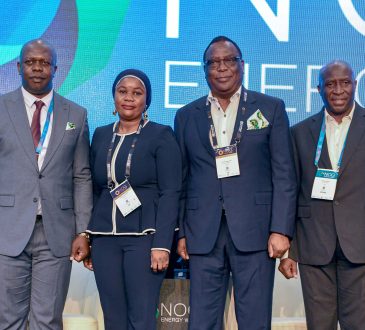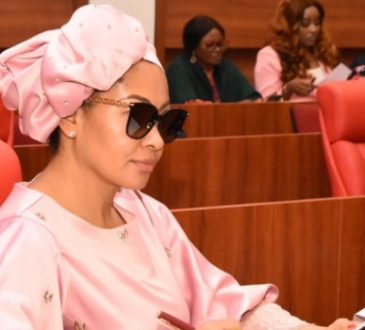Agbakoba faults Buhari’s handing restructuring exercise to NASS, Council of State

Former President, Nigerian Bar Association (NBA), Dr Olisa Agbakogba (SAN), on Tuesday in Lagos faulted President Muhammadu Buhari for handing over the restructuring of the country to the National Assembly and National Council of State, saying the step was in the wrong direction.
Agbakogba, a former president, Civil Liberty Organisation (CLO)), said this in Lagos at a press briefing, even as he called on the Federal Government to urgently implement the Steve Orosanye Committee Report on the review of the 263 statutory agencies of government.
The former NBA president, who described Nigerian as increasingly fragile state as there were conflict and agitation everywhere with most parts of Nigeria feeling either marginalised or excluded, a situation which he said had called for restructuring of the country, maintained that President Buhari ought not to have delegated the responsibility to restructure Nigeria to the National Assembly and National Council of State.
According to him, this responsibility cannot be delegated, saying Section 5 of the 1999 Constitution vested the president with the executive powers of the Federation, which includes the power to restructure Nigeria.
“Although the president has delegated the responsibility to restructure Nigeria to the National Assembly and National Council of State, this responsibility cannot be delegated. Section 5 of the Constitution vests the president with the executive powers of the Federation and this includes the power to restructure Nigeria.
“The president should initiate the restructuring project by providing context. It can be implemented by the executive and administrative orders and also presenting the 2014 National Conference Report to the National assembly, which actually examined and resolved a lot of the restructuring issues. So I believe we should start with the report,” he said.
“Professor Ben Nwabueze said and I agree with him that the way forward for Nigeria is for the people, in the exercise of the power in them as a sovereign people, to make through a referendum, a new constitution, constituting a new political order. The process must be led by the president, as the elected leader of the people,” he said.
He stressed that for the restructuring of the country to be successful, there must be the review of the revenue sharing formula.
“In order to succeed, the restructuring process must identify potential challenges; one of which is the contentious issue of fiscal federalism. How can we create a balance between the Federal and the federating units in revenue sharing? It is suggested that the first broad principle is for Federal Government to allow States control over natural resources in their domain.
“The second principle is the possibility to isolate hydrocarbons as it is, for now, crucial to the Nigerian economy, and create-transitional provisions, to transfer ownership to oil-bearing states over a period but in the meantime review percentage derivation and the third possibility is to demarcate onshore hydrocarbon to be left to the littoral States and offshore to the Federal Government.
“The fourth and most important challenge is to develop a blueprint on the restructuring to be used to engage Nigerians and the fifth challenge is to recognize the difference between devolution of powers and redistribution of powers.
“The relevant concept for restructuring is redistribution and not devolution of powers. The concepts are mixed up; redistribution is when power is rearranged between the Federal and Regional governments, devolution relates to powers given up by the unitary government to the regions and we should also be self-aware that Nigeria is a federation and not a unitary state,” Agbakoba stated.
Agbakoba, while setting record straight, contended that restructuring was not only about political arrangements namely, establishing new regions, it was also about economic and administrative governance insisting that political restructuring was not enough to solve the country’s problem, else the inefficiencies at the centre would simply be transferred to the new regions.
“Notwithstanding the buzz over restructuring in the country, there is a lack of clarity, context and direction on what it is about. Restructuring is not only about political arrangements namely, new regions, it is also about economic and administrative governance.
“Political restructuring is not enough. Otherwise, the inefficiencies at the centre will simply be transferred to the new regions, so restructuring must address other connecting issues like the bloated size of the public service, why should 80 per cent of the national budget be used to service three per cent of the population? he queried.
Agbakoba said theOronsanye report which called for the review of 263 statutory agencies of government and asked the government to scrap 102 agencies must be implemented immediately as the government needed to focus on its core mandate.
Agbakoba added that the core mandate of government include policy execution and regulations, saying government must stay completely away from business matters, expressing the belief that this would “empower a new set of economic actors and bring about the type of restructuring critical for economic development.”






